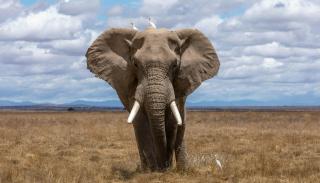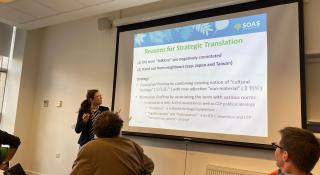
Breadcrumbs navigation
International Relations and the non-human: Exploring animal culture for global environmental governance
In this short video abstract, authors Teresa Lappe-Osthege and Rosaleen Duffy discuss the key arguments from their new Review of International Studies article - 'International Relations and the non-human: Exploring animal culture for global environmental governance'.
Want to know more? You can read the full article at DOI: https://doi.org/10.1017/S0260210524000366
This particular article is open access, however BISA members receive access to all articles in RIS (and our other journal European Journal of International Security) as a benefit of membership. To gain access, log in to your BISA account and scroll down to the 'Membership benefits' section. If you're not yet a member join today.
Abstract
There is a paradox in global environmental governance that policymaking must ‘follow the science’ while environmental change is itself characterised by scientific uncertainty. This paper addresses this paradox by embracing that uncertainty. We bring International Relations (IR) into conversation with animal studies to further develop conceptual debates on integrating non-human actors. We focus on avian cultures to understand the nexus between bird crime, flyways, and global environmental governance. We analyse how bird migrations along flyways disrupt mainstream systems of knowledge production that global conventions rely on. Zooming in on bird crime along flyways, we demonstrate that crime relies on offenders’ understanding of avian cultures. We synthesise those findings with an analysis of the Convention on Migratory Species, as the only global convention that integrates animal cultures to develop more effective responses to wildlife crime. Our analysis demonstrates that international conservation overlooks the exploitation of avian culture for criminal activity, rendering policy responses less effective, particularly in contexts of scientific uncertainty. Integrating animal cultures can address scientific uncertainty and promote multispecies learning, creating more effective forms of global environmental governance. Ultimately, this renders the non-human visible and makes it possible to explore the implications for multispecies entanglements in IR.


